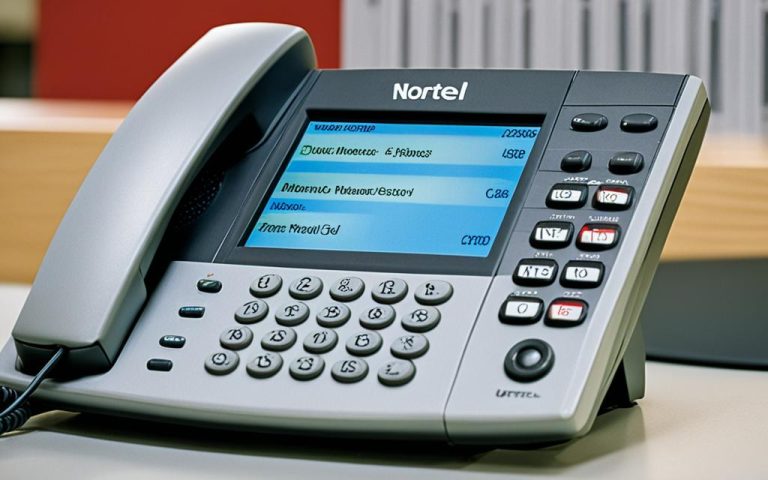A wireless network technician fixes problems with systems and helps with first and second-level support. They look into support tickets and system alarms to solve issues. They make sure customers are happy and help users with technical problems.
They also check and understand call details and records, set up and keep hardware running well. They make sure network accounts are ready and keep technology safe.
Key Takeaways:
- Wireless network technicians fix problems with systems and support, making sure customers are happy and helping with technical issues.
- They check and understand call details and records, set up and keep hardware running well. They make sure network accounts are ready and keep technology safe.
- According to Payscale, wireless communication technicians earn an average of $40,000 a year in the United States, with an average hourly wage of $19.78. Salaries range from about $18.44 per hour for field technicians to $44.30 per hour for network engineers1.
- The Bureau of Labor Statistics (BLS) expects a 4% drop in technician jobs until 20241.
- FieldEngineer.com offers freelance wireless communication technician jobs, with over 40,000 registered field engineers on the platform1.
Responsibilities of a Wireless Network Technician
A wireless network technician is key to keeping networks running well. They make sure everything connects smoothly and works as it should.
One big job for them is fixing mediation apps and systems. They help with data applications and servers, making sure they work right. They check and look into call details and usage records2.
They also focus on giving great customer service. Technicians talk to customers, fix problems, and offer support. Their skills in finding and solving network issues help keep customers happy2.
Setting up and keeping hardware in good shape is another big task. They install, set up, and maintain network gear. This means they make sure it runs well and meets the company’s needs. They handle network security and keep things updated3.
Wireless network technicians also keep the network safe. They set up and keep security tools like firewalls and antivirus software running. This helps protect data and stop unauthorized access3.
In summary, wireless network technicians do a lot. They fix apps, support data systems, give great customer service, set up hardware, manage accounts, and keep the network secure. Their skills and focus are key to a network’s smooth operation23.
Skills Required for Wireless Network Technicians
To be a top wireless network technician, you need a mix of skills and knowledge. These skills help you manage and fix complex networks well. Let’s look at the main skills you need to do great in this job.
Fundamental Networking Knowledge
Knowing networking technologies is key for wireless network technicians. You should understand LAN/WAN networks, TCP/IP protocols, network security, and how to troubleshoot networks. With this knowledge, you can quickly find and fix network problems, keeping networks running smoothly.
Effective Communication Skills
Good communication is crucial for wireless network technicians. You need to explain complex tech ideas clearly to clients, coworkers, and others. This means being good at both writing and speaking, which helps with working together and solving problems.
Diagnostic and Problem-Solving Abilities
Wireless network technicians must be great at solving problems and figuring out issues. You need to analyze complex networks, read log files, and use tools to troubleshoot. By using a step-by-step approach, you can fix network issues fast, reducing downtime for clients.
Experience with Software and Hardware
Knowing about common software and hardware is vital for wireless network technicians. You should understand networking gear like routers, switches, access points, and firewalls. Also, be familiar with software tools for monitoring, setting up, and analyzing networks.
Relevant Certifications
Certifications boost a wireless network technician’s trustworthiness and skills. Many employers look for these certifications to prove a candidate’s expertise. Some top certifications include Cisco Certified Network Associate Wireless (CCNA Wireless), Cisco Certified Network Professional Wireless (CCNP Wireless), CompTIA Network+, Certified Wireless Network Administrator (CWNA), and Certified Wireless Security Professional (CWSP)4.
To really stand out, wireless network technicians can get more certifications that match their career goals and the industry’s needs.
By improving these key skills and getting the right certifications, wireless network technicians can become top professionals in this fast-growing field of network technology56.
Educational Qualifications for Wireless Network Technicians
To become a wireless network technician, you need to meet certain educational standards. A high school diploma or its equivalent is the basic requirement for most jobs7. But, having a degree or certificate in computer science, information technology, engineering, or telecommunications can give you an edge7.
A high school diploma is enough for some entry-level jobs. But, for more complex roles, having a higher education is preferred. For example, junior network technicians usually need an associate degree in a tech-related field8. Senior network technicians often have a bachelor’s degree in a similar area8.
It’s also key to have hands-on experience with wireless networks and devices. This can come from volunteering, internships, or starting in entry-level tech roles7. This experience helps you build the skills and knowledge needed for your career.
The wireless technology field is always changing. So, it’s important to keep up with new trends and practices. You can do this by reading industry blogs, going to webinars, seminars, or conferences7.
Creating a professional portfolio is also vital. It should include your educational background, certifications, work experience, projects, and references7. This portfolio shows your skills and ability to manage complex wireless network tasks.
The educational needs for wireless network technicians depend on the job and your level of expertise. While a high school diploma can get you started, those with more education, experience, and ongoing learning have better chances for career growth.
Certifications for Wireless Network Technicians
To do well in wireless networking, getting the right certifications is key. These certifications prove your skills and knowledge in setting up and fixing wireless networks. They cover a lot of ground in wireless networking.
-
Cisco Certified Network Associate Wireless (CCNA Wireless)
CCNA Wireless covers about 25% to 35% of wireless networking9. It teaches you how to manage and support wireless LANs with Cisco gear. -
Cisco Certified Network Professional Wireless (CCNP Wireless)
The CCNP Enterprise Wireless track goes deep into wireless networking, over 50%9. It’s for experts who plan, set up, and manage big wireless networks. -
CompTIA Network+
CompTIA Network+ is a broad certification that covers basic networking skills9. It’s a great start for wireless network technicians. -
Certified Wireless Network Administrator (CWNA)
CWNA certification gives you deep knowledge in wireless network management. You pass a 60-question exam to become CWNA certified10. -
Certified Wireless Security Professional (CWSP)
CWSP focuses on keeping wireless networks safe from threats. It’s a top-level certification in wireless security.
Getting these certifications shows you’re serious about growing in your career. They prove your skills in wireless networking. This can lead to better job opportunities and higher pay as the demand for skilled technicians grows9.
Wireless Networking Certifications and Average Salaries
| Certification | Average Salary (CAD) |
|---|---|
| Certified Wireless Specialist (CWS) | $149.99 |
| Certified Wireless Technician (CWT) | $149.99 |
| Certified Wireless Network Administrator (CWNA) | $225 |
| GIAC Assessing and Auditing Wireless Networks (GAWN) | $849 |
| Cisco Certified Internetwork Expert (CCIE) Enterprise Wireless (ENCOR 350-401) | $400 |
| Cisco Certified Internetwork Expert (CCIE) Enterprise Wireless v1.0 | $1,600 |
| Aruba Certified Mobility Associate (ACMA) | $230 |
| RUCKUS Certified Wi-Fi Associate (RCWA) | $150 |
| Extreme Networks Associate (ENA) | Free |
| Tanaza Wi-Fi Networking Certification | Free |
Certification costs vary. For example, the CWS and CWT exams are $149.99 each, but CWNA costs $22510. The GIAC GAWN exam is more expensive at $84910.
These exams have different question types and time limits, from 90 minutes to 2 hours10. Some, like the Tanaza Wi-Fi Certification, don’t need proctoring and can be done online10. Passing these exams shows you have the skills needed for a wireless networking career11.
Salary of Wireless Network Technicians
Thinking about becoming a wireless network technician? You might wonder about the pay. Salaries vary by location, industry, experience, and job duties. Let’s look at what wireless network technicians earn in different places.
In Magnolia, TX, wireless network technicians make between $57,483 and $77,470 a year12. Their average salary is $64,886. With bonuses, their total pay can be from $60,232 to $79,017, averaging $65,703.
In Houston, TX, they earn between $58,842 and $79,30212. Roles like wireless technicians and senior engineers have different pay scales in Magnolia, TX. For instance, a wireless technician makes $62,234 to $78,656, and a senior engineer earns $69,371 to $85,71612.
Wireless network engineers in Magnolia, TX, can earn from $69,567 to $86,04512.
Salaries change due to company size, industry, and local conditions12. The cost of living also affects salaries, with prices in Magnolia, Texas, going up by 2.3% last year12.
Data from13 shows the average yearly pay for network technicians in the U.S. is $64,972. Big companies like Google, Cisco, and Microsoft pay network technicians well, with Cisco offering a median total pay of $124,000. This shows the growing need for broadband and the rising salaries for technicians13.
In Lincoln, NE, wireless network technicians make $60,000 a year14. They need 2 years of experience and skills in wireless and Ethernet networking. They also need good communication and organizational skills14.
The salary for wireless network technicians varies a lot. It depends on location, experience, qualifications, and industry needs. It’s important to look at all these factors when thinking about salaries in this field.
Benefits of Field Engineer for Wireless Network Technicians
The role of a wireless network technician is key to keeping connections strong and networks running smoothly. Today, businesses need wireless networks to work well. Wireless network technicians can really benefit from Field Engineer’s services.
Field Engineer connects over 40,000 freelance engineers from 180 countries. It’s a global marketplace that helps wireless network technicians find great jobs worldwide. They can use their skills and experience in a flexible way.
By joining Field Engineer, wireless network technicians get many benefits:
- Increased Job Opportunities: Field Engineer gives technicians a huge job network. They can look for and apply to projects across different industries and places. This means lots of chances to grow their careers and explore new areas.
- Flexible Work Arrangements: Working on Field Engineer lets technicians pick their projects and hours. This means they can manage their work and personal life better, leading to a healthier balance.
- Competitive Earnings: Technicians can set their own rates on Field Engineer based on their skills and experience. The platform makes sure they get paid fairly, matching industry standards. On average, wireless network freelancers earn $24.57 per hour15.
- Global Networking: Field Engineer helps technicians meet professionals from all over the world. Working with others means sharing knowledge, growing professionally, and making lasting connections.
- Efficient Project Management: Field Engineer makes managing projects easy, ensuring good communication between technicians and employers. This helps technicians focus on doing their best work.
- Certificate and Portfolio Building: Field Engineer lets technicians show off their skills and build a portfolio of their work. This is great for showing their expertise and certifications, like Cisco Certified Network Professional (CCNP) Wireless or Certified Wireless Network Professional (CWNP)15.
- Continuous Skill Enhancement: Field Engineer supports ongoing learning and skill growth. By taking on different projects, technicians can learn more and keep up with industry trends.
Field Engineer gives wireless network technicians the tools to take charge of their careers. By using the platform, they can gain valuable experience, boost their income, and build a strong freelance career. Join Field Engineer today and make the most of your skills.
Overview of Network Technicians
Network technicians are key in today’s digital world. They make sure computer networks work well and help companies with technical support16. They do many tasks like fixing problems, supporting tech, setting up networks, and teaching others about networks16.
In smaller companies, they do even more because there aren’t many IT staff16. They fix issues like slow internet, email problems, and broken network gear16. They work together to solve big and urgent network problems quickly16.
They must always learn new things to keep up with tech changes16. Their job now includes designing networks, planning upgrades, and making security updates16. They work with many industries that use computer networks, offering job chances in different fields16.
Network technicians can move up to become network administrators, systems engineers, or IT managers16. So, if you like tech and are ready to learn new things, this could be a good career for you16.
They manage many types of networks like LAN, WLAN, WAN, and more16. Their job is not just about fixing networks. It also requires creativity and teamwork16.
To be great at this job, having experience or a similar job is helpful17. You should have CCENT/CCNA certifications and a degree in computer science or a related field17. Knowing about LAN/WAN networks and TCP/IP protocols is also key17.
Network technicians can earn a good salary, with a median of over $68,000 in 2022 and top earners making more than $115,00018. By 2024, the average salary went up to over $79,000, usually between $69,000 and $90,00018. This shows there’s a lot of demand and chances for career growth18.
Those with a bachelor’s degree and more certifications can earn even more18. Certifications like CompTIA A+ and CCNA can boost their skills and pay18.
Tools like Wireshark are vital for network technicians. They’ve been important for 18 years for troubleshooting and managing networks18. These tools help them by looking at network traffic and finding problems18.
Conclusion
Wireless network technicians are key to keeping networks running smoothly and securely. They make sure networks work well and help companies use technology better. With more cloud computing, IoT, and 5G, the need for skilled workers will grow19.
Planning wireless networks means looking at coverage, capacity, and security. It’s important to think about the location and how the environment affects the network20. Places with lots of people, like stadiums, need techs who can handle many devices at once20. It’s important to match network capacity with what businesses need and how guests use Wi-Fi20.
Even though having a college degree is important, many network engineers don’t have one13. But getting the right certifications and improving skills is crucial for doing well. In the U.S., network technicians earn an average of $64,972 a year. Big companies like Cisco offer even better pay, sometimes over $100,00013. Salaries for these jobs keep going up13.
With more jobs available, sites like Field Engineer help freelance technicians find work and grow their careers. By having the right skills and certifications, wireless network technicians can do great in their jobs and help companies succeed1913.
FAQ
What are the responsibilities of a wireless network technician?
A wireless network technician fixes and supports systems and data. They check call records and ensure good customer service. They also install and keep hardware running smoothly, set up network accounts, and secure technology.
What skills are required for a wireless network technician?
Wireless network technicians need to know about networks, protocols, and technology. They should be good at communicating, solving problems, and using software and hardware. Having CCENT/CCNA qualifications is also helpful.
What educational qualifications are required to become a wireless network technician?
To be a wireless network technician, you usually need a bachelor’s degree in a related field like Telecommunications or Computer Science. Some jobs might want candidates with work experience or a master’s degree in wireless networking.
What certifications can enhance the credentials of a wireless network technician?
Certifications like CCNA Wireless, CCNP Wireless, CompTIA Network+, CWNA, and CWSP can boost a wireless network technician’s skills. These certifications show expertise in wireless networking and security.
What is the average salary of a wireless network technician?
Wireless network technicians can earn between ,504 and 1,232 a year, based on Indeed. Glassdoor says the average salary is about ,676 in the U.S.
What are the benefits of Field Engineer for wireless network technicians?
Field Engineer connects freelance engineers with jobs worldwide. It has over 40,000 engineers from 180 countries. This platform helps wireless network technicians find great jobs and talent.
What is the overview of network technicians?
Network technicians check, fix, and keep networks running well. They work on LAN, WAN, cloud networks, servers, and data communications. Their job is to make sure networks work right and solve problems when they don’t.
Source Links
- https://www.fieldengineer.com/skills/wireless-communication-technician – Wireless Communication Technician | Job Description
- https://employment.unl.edu/postings/91987 – Wireless Network Technician (Lincoln, NE)
- https://www.rasmussen.edu/degrees/technology/blog/what-does-a-network-technician-do/ – What Does a Network Technician Do? Cracking the Code on This Versatile Role
- https://www.fieldengineer.com/skills/wireless-network-technician – Wireless Network Technician | Job Description, Employment
- https://www.franklin.edu/career-guide/computer-network-support-specialists/what-do-network-technicians-do – What Do Network Technicians Do: Daily Work & Skills
- https://www.bryantstratton.edu/blog/2022/april/how-to-become-a-network-technician – 6 Steps You Need to Take to Become a Network Technician
- https://www.linkedin.com/advice/0/how-can-you-qualify-wireless-network – How can you qualify as a wireless network technician?
- https://www.tempositions.com/job-descriptions/network-technician/ – Network Technician
- https://www.techtarget.com/searchnetworking/tip/Most-valuable-wireless-network-certifications – 5 most valuable wireless network certifications | TechTarget
- https://www.networkworld.com/article/970782/9-career-boosting-wi-fi-certifications.html – 9 career-boosting Wi-Fi certifications
- https://www.cnet-training.com/programs/certified-wireless-infrastructure-technician-cwit/ – Certified Wireless Infrastructure Technician (CWIT®) | CNet Training
- https://www.salary.com/research/salary/recruiting/wireless-network-technician-salary/magnolia-tx – Wireless Network Technician Salary in Magnolia, Texas | Salary.com
- https://www.broadbandnation.org/network-tech/navigating-career-network-technician – Navigating a career as a network technician
- https://careers.nebraska.edu/postings/2394 – Wireless Network Technician (Lincoln, NE)
- https://www.fieldengineer.com/skills/wireless-network-engineer – Wireless Network Engineer Job Description | Field Engineer
- https://www.rasmussen.edu/degrees/technology/blog/what-does-a-network-technician-do – What Does a Network Technician Do? Cracking the Code on This Versatile Role
- https://resources.workable.com/network-technician-job-description – Network Technician job description
- https://www.auvik.com/franklyit/blog/network-technician – Network Technician Guide: Key Roles, Tools, and Career Growth
- https://moldstud.com/articles/p-network-technicians-the-architects-of-seamless-connectivity – Network Technicians: The Architects of Seamless Connectivity
- https://www.techtarget.com/searchnetworking/feature/How-to-tackle-wireless-network-planning-in-9-steps – 9 Steps for Wireless Network Planning and Design



















